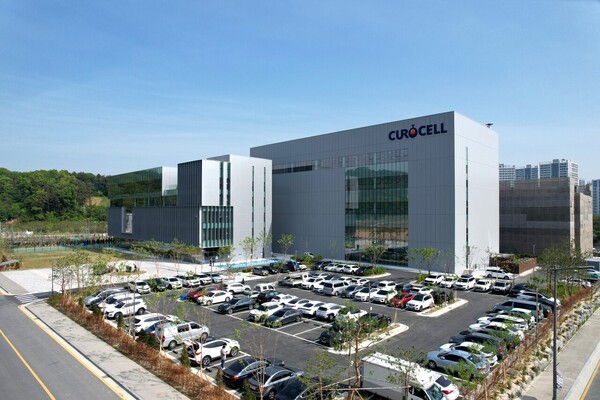
Curocell has embarked on a new challenge of expanding indications aside from developing the first domestic CAR-T therapy.
Curocel said Wednesday that it has completed administering the first patient group in the phase 1 clinical trial of its CAR-T therapy candidate, CRC01 (anbalcaptagin-otoryucel or anbal-cel) for relapsed or refractory adult acute lymphoblastic leukemia (ALL) patients.
The phase 1 study evaluates the safety, maximum tolerated dose, and potential therapeutic benefit of anbal-cel in about 10 relapsed or refractory adult ALL patients divided into three cohorts (low, medium, and high dose). The clinical trial will be conducted at Samsung Medical Center, Asan Medical Center, the Catholic University of Korea Seoul St. Mary's Hospital, Severance Hospital, and Seoul National University Hospital.
Adult ALL is a rare disease, with 200 to 300 new cases annually in Korea. Despite chemotherapy and hematopoietic stem cell transplantation, more than half of patients relapse or become refractory to existing treatments. The five-year survival rate for patients with relapsed or refractory ALL is less than 10 percent.
Globally, the only CAR-T therapy approved for adult ALL patients is Gilead's Tecartus (sucaptazin autologous cell), approved by the U.S. Food and Drug Administration in 2021 but has not been introduced in Korea.
“Adult ALL has a large number of patients in their 40s and 50s who are economically active, and there is no CAR-T treatment for relapsed or refractory patients in Korea,” Curocell CEO Kim Gun-soo said. “We are very pleased to offer adult ALL patients in Korea the opportunity to receive CAR-T therapy through this clinical trial.”
Yoo Jeong-hee, CEO of Dream CIS, which conducts the phase 1 trial of anbal-cel, said, “CAR-T therapy is a new and barren field, and market data is insufficient. However, based on our clinical trial experience and know-how accumulated over 20 years, we will do our best to advance Curocel's CAR-T therapy commercialization rapidly.”
Besides, Curocell plans to complete a phase 2 study of anbal-cel in patients with diffuse large B-cell lymphoma (DLBCL), the first indication for anbal-cel, by the end of the year. It will also apply for new drug approval to the Ministry of Food and Drug Safety in the second half of next year. Last month, Curocell participated in the Bio International Convention (BioUSA 2023) in Boston, Mass., and held partnership meetings.
“We had in-depth discussions on technology export for the OVIS platform and other assets in the pipeline, as well as licensing of anbal-cel,” a Curocell official said. “In addition, there were inquiries about CDMO services utilizing our new plant in Dungok, which we completed this year. We agreed to have further meetings to explore various possibilities.”
Meanwhile, Curocell is preparing to enter the Kosdaq market. The company filed a preliminary listing application with the Korea Exchange in May and is awaiting the results. Samsung Securities and Mirae Asset Securities are lead managers. Curocell aims to list on the tech-heavy secondary stock market within the year.

